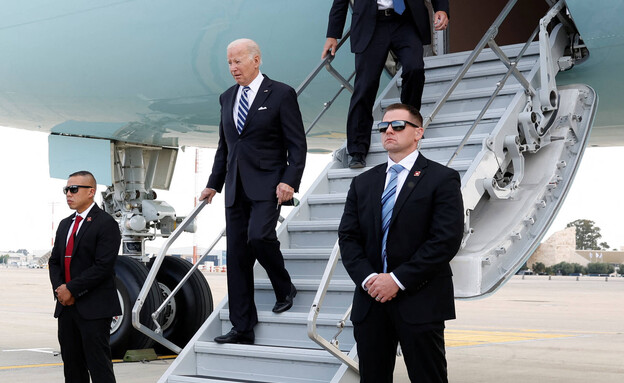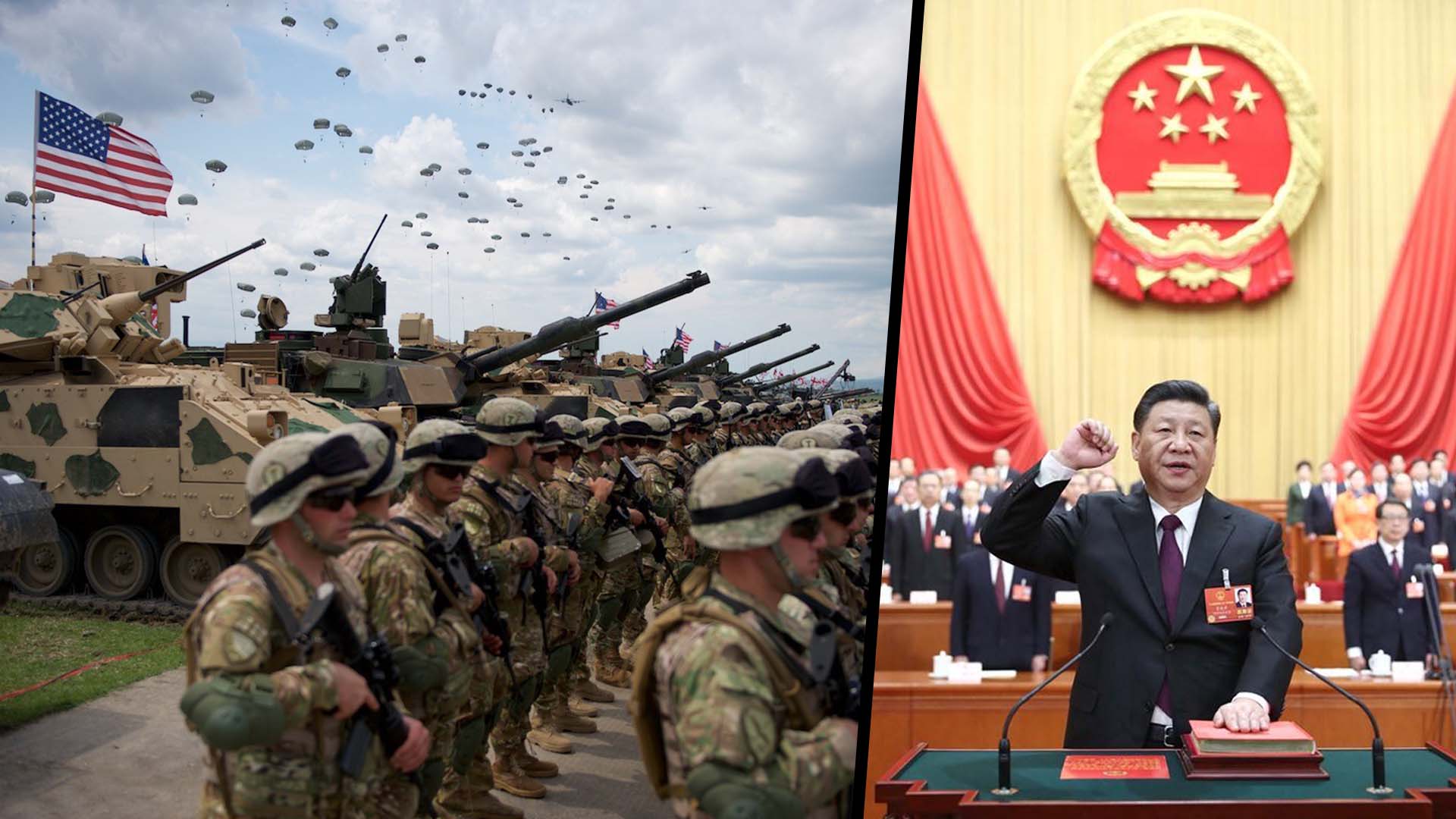
Biden’s Defense Strategy Is Not Working
Iran and Hezbollah’s threatened response to Israel following recent targeted assassinations and Sunday’s attack by Hezbollah allow us to view how the United States manages its strategy in the Middle East. This strategy is characteristic of the Biden administration even beyond the borders of the Middle East and is true for Europe and Asia.
You can call it a strategy of defense by the United States. It derives from Biden’s worldview and from America’s active intervention in Iraq and Afghanistan, where the administration initially supported the countries but over time changed its position and opposed them. Notably, when Biden served as Barack Obama’s vice president, he sought to increase American forces in Afghanistan. It should be stressed: Democratic presidents who preceded him, including Bill Clinton and Obama, were much less “defensive” than Biden himself.
It is important to mention at the start that in the framework of this strategy, starting Oct. 7, President Biden offered Israel unprecedented support. Biden calls himself a Zionist and doubtless many in Israel and the world see him as such. The American arms train that arrived here the past 11 months is extraordinary in scope as is the diplomatic umbrella Israel receives from the United States including its veto in the Security Council of anti-Israel resolutions. This commitment springs from a moral position and close values between the countries first of all, but no less important are American interests based on building alliances as in previous periods, whether during the world wars or the Cold War. On one side stand China, Russia, North Korea and Iran; on the other side stand the United States and its allies, and to this respected list we can add Israel.
Given Oct. 7, the April 14 night time missile and drone attack by Iran against Israel, and recently following the threats by Iran and Hezballah, how does the United States manage its strategy?
The first stage in every region of the world is to build a coalition. The Biden administration tries not to act alone, but to build a broad coalition to the extent possible in every region. This coalition consists of a shared ideology and, above all, a shared strategy. This is true for Europe with the strengthening of the NATO alliance, in Asia with building a counter-axis to China to include Japan and Korea, and for the Middle East with the strengthening of the Central Command, CENTCOM, by enlisting the participation of countries from Saudi Arabia to Israel.
The second stage is building deterrence. As of Oct. 8, but perhaps even more so in the current crisis, the United States has dispatched an extensive force to the region. This time, the U.S. has manifested this support by deploying two aircraft carriers, 40,000 soldiers, and even a nuclear submarine carrying 150 Tomahawk missiles, carrying a sharp message from the president: “Don’t.”
The third stage in the American strategy is defense. We saw how the American Central Command operated in a combined and extraordinary manner on April 14 by simultaneously intercepting hundreds of rockets and aerial vehicles. This was also true for the defense coalition assembled by the United States in the Red Sea to contend with the Houthi threat. This strategy also works well in Europe with the arming of Ukraine and in Asia with the deployment of forces around Taiwan. This is not done in vain. One of the main issues that emerges in talks between the United States and Saudi Arabia is this same “defense alliance.”
Despite all this, Biden’s doctrine, in my opinion, lacks the most important layer and that is offense. The United States, since its entanglements in far-off wars such as Afghanistan and Iraq, has avoided to the extent possible endangering American soldiers and going to or threatening wars. From the beginning, the Biden administration has been characterized by a doctrine of defense -– from the hasty exit from Afghanistan to the removal of the Houthis from the terrorism list, conducting drawn-out negotiations with the Iranians including unfreezing assets, refraining from attacks on the International Atomic Energy Agency (a step Britain, France, and Germany wanted the United States to lead), to the fact the American reaction to attacks by the Houthis was quite moderate. This is the main reason Biden’s “Don’t” only gets a partial response. This is also true in other parts of the globe. For example, the fact the United States has for a long time strictly mandated that the weapons it supplies to Ukraine only be used for defensive purposes.
Recently, I returned from a visit to Japan where the main threat is an attack by China. The Japanese with whom I met did not ask if China would attack Taiwan, but when. Ultimately, the lack of an offensive element in Biden’s doctrine allows the axis of resistance to grow stronger and become better armed. For example, most of the uranium enrichment activity by Iran to high 60% levels occurred during the last two years. The United States, which is very concerned about war spreading in the Middle East, particularly before the U.S. presidential election, has imposed not a few restrictions on Israel concerning attacks in Lebanon.
The bottom line and what is important is how the world perceives the United States. Does China think the United States will defend Taiwan militarily from a future invasion? Did Russia fear the United States prior to its invasion of Ukraine 2 1/2 years ago? Did Iran fear an American reaction on April 14? The answer to these questions under a Biden administration is no.
The main threat to Middle East stability is Iran’s efforts to acquire nuclear weapons. The fact that Iran continues to organize, arm and administer the terrorist structure in Yemen, Iraq, Syria, Lebanon, Gaza and the West Bank means that no defensive doctrine will interrupt this arrangement. The presidential election in the United States is critical to stopping Iran from growing stronger. Democratic Party candidate Kamala Harris will not change the Biden doctrine and will likely be even more restrained in specific areas. In contrast, it is hard to predict what Donald Trump’s strategy will be, particularly in the Middle East. As president, Trump refrained from responding to an Iranian attack, which destroyed half of the petroleum output by Saudi Arabia via Aramco (sending a bad message to the Saudis, who quickly enhanced their relations with Iran). On the other hand, Trump did not hesitate to assassinate Qassem Soleimani, the Quds Force commander. Accordingly, there is a chance Trump will go on the attack.
Stopping Iran is critical to Israel’s existence, and without full cooperation from the United States, it will be very difficult to carry on. Therefore, in choosing between no chance for attack and maybe, I choose maybe. As we know, even in a National Basketball Association game, it is impossible to win on defense, all the more true when playing for life in the Middle East.

